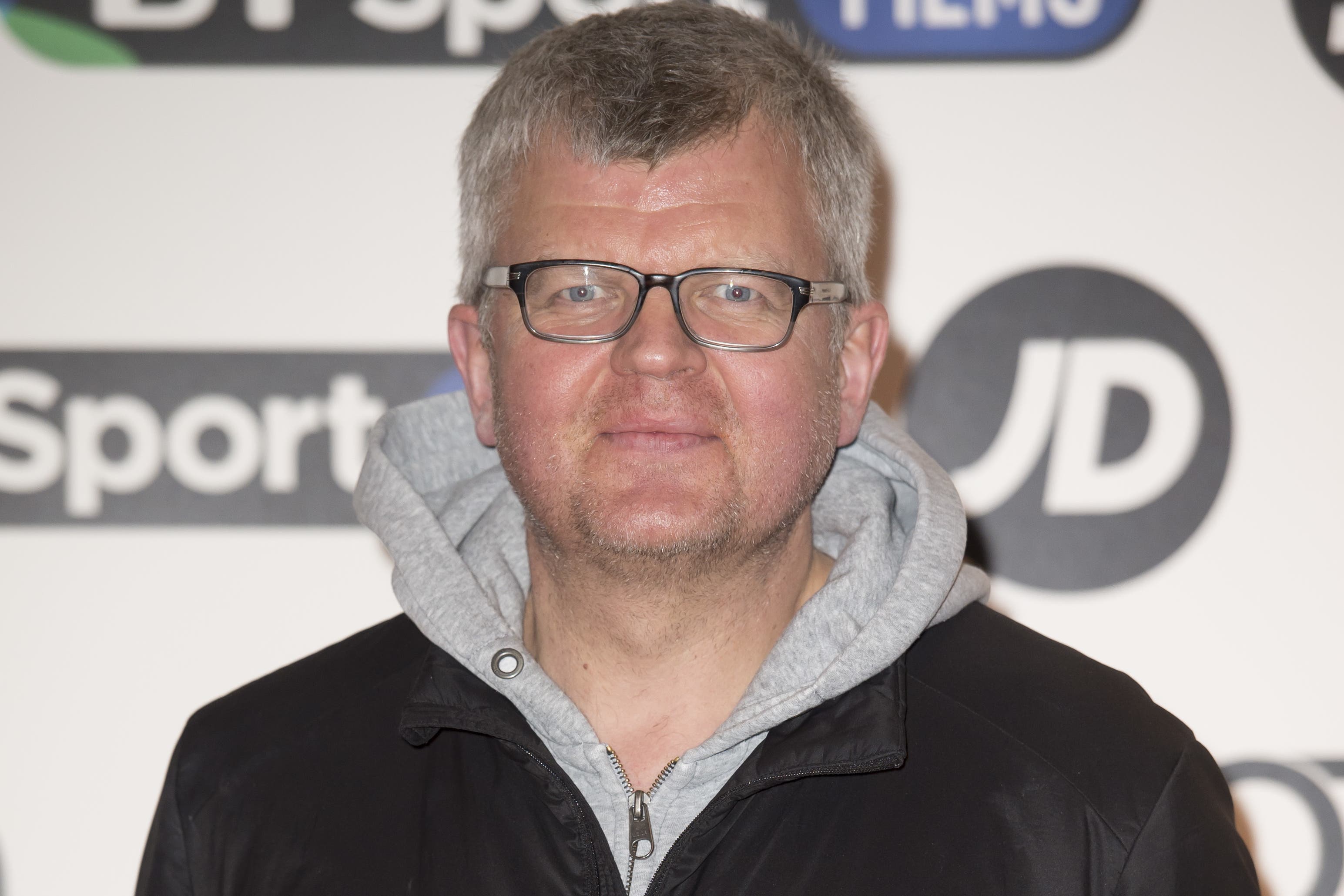Adrian Chiles says if he won the lottery he’d create ‘drinking is boring’ advert
Chiles helmed the BBC documentary Drinkers Like Me in 2018 and released a book titled The Good Drinker: How I Learned To Love Drinking Less in 2022.

Your support helps us to tell the story
From reproductive rights to climate change to Big Tech, The Independent is on the ground when the story is developing. Whether it's investigating the financials of Elon Musk's pro-Trump PAC or producing our latest documentary, 'The A Word', which shines a light on the American women fighting for reproductive rights, we know how important it is to parse out the facts from the messaging.
At such a critical moment in US history, we need reporters on the ground. Your donation allows us to keep sending journalists to speak to both sides of the story.
The Independent is trusted by Americans across the entire political spectrum. And unlike many other quality news outlets, we choose not to lock Americans out of our reporting and analysis with paywalls. We believe quality journalism should be available to everyone, paid for by those who can afford it.
Your support makes all the difference.Broadcaster Adrian Chiles has said he wants to communicate “just how dreary” drinking alcohol is.
Chiles helmed the 2018 BBC documentary Drinkers Like Me, in which a doctor warned him he could not continue his level of drinking of up to 100 units a week.
In 2022, he released a book titled The Good Drinker: How I Learned To Love Drinking Less, having learnt how to moderate his drinking behaviours.
Drinking mainly, it's boring
Appearing in front of the Health and Social Care Committee to discuss how to prevent harms caused by alcohol, Chiles said: “If I won the lottery, I would get an ad campaign going out which would be ‘drinking is boring’.
“Drinking mainly, it’s boring.
“It makes you boring, and it becomes boring if you do too much of it.
“I thought about doing a picture book or a book of photos or a newspaper article about shots of people drinking boringly. Surprisingly I couldn’t find any takers for this idea, but it’s a way of communicating just how dreary it is.”
Chiles previously said he had been drinking more or less every day since the age of 15.
The 57-year-old told the committee that the “power of social norm” is something to consider, “compounded by the fact that most drinkers like me would surround themselves with other drinkers”.
“In the four years I was at university in London, let’s say I made roughly 30 friends and acquaintances – by an absolutely astounding coincidence every single one of them was a drinker.
“So I just sought those people out, they sought me out. If there’s a day I’d meet them, we’d meet for a drink, that’s what we do.
“And we think everybody is like that and that’s a way to convince yourself that you are fine just to carry on drinking.”
During the session, Chiles revealed how he learnt to drink less.
He said: “The first drink gives you a change of state, you feel maybe better about things. The second drink less so, the third drink, hardly at all.
“So if you drink and drink and drink, every drink you have is just in vain and a hopeless and doomed attempt to recreate the feeling that first drink gave you, and I believe that’s true.
“It has really helped me think ‘I don’t want another one’ – how much better is that third drink going to make me feel than the second drink.
“I just think it’s an important thought to hold on to.”
Chiles also said he felt “hopeful” that the younger generation were starting to drink less, but suggested that changes needed to be made about the term alcoholism.
Now for some drinkers, don't get me wrong, it is (an) absolutely appropriate way to give up completely for several months or a year or forever
“I just think that really does put people off, that frightens people off from dealing with it,” he said.
“Now for some drinkers, don’t get me wrong, it is (an) absolutely appropriate way to give up completely for several months or a year or forever. I get that.
“But there is another way… if you’re drinking 56 units a week, the truth is you’re going to struggle anytime soon to get down to 14 units a week (low-risk drinking guidelines).
“But that’s not to say you shouldn’t try and, as I understand it, the way the harm curve works is if you get down from 50 to 30, you’re actually relatively doing yourself more good than going from 30 to 10.”